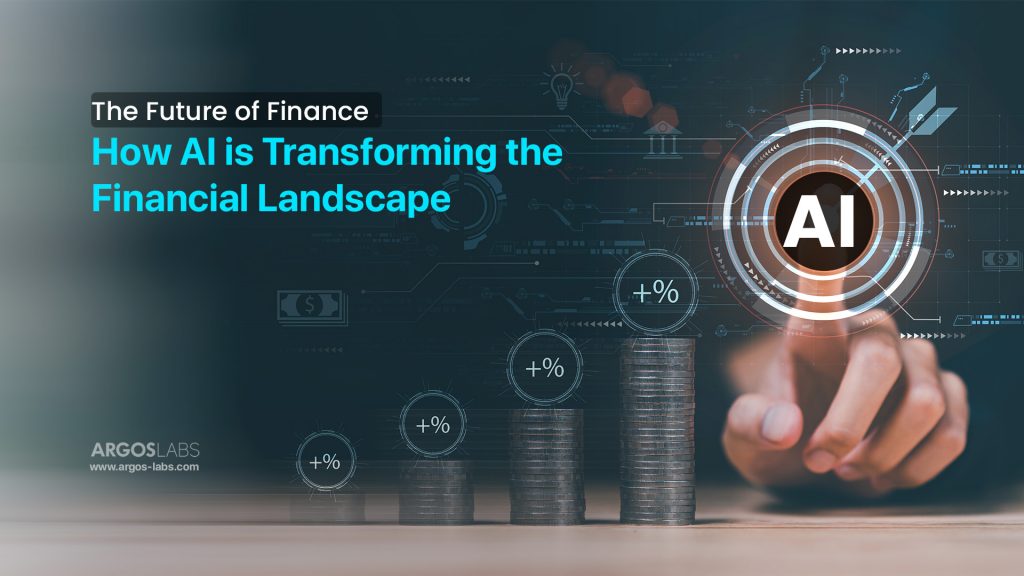
The finance industry is experiencing a significant transformation, driven by advancements in technology and the integration of Artificial Intelligence (AI) into various financial processes. From fraud detection to personalized banking, AI is reshaping how financial institutions operate and interact with customers. In this blog, we will explore the various ways AI is transforming finance, the benefits it brings, and what the future holds for this dynamic industry.
AI in Fraud Detection
One of the most critical applications of AI in finance is fraud detection. Financial institutions face constant threats from cybercriminals and fraudulent activities that can lead to significant financial losses. Traditional methods of fraud detection often rely on manual analysis and rule-based systems, which can be slow and prone to errors.
AI-powered fraud detection systems leverage machine learning algorithms to analyze vast amounts of transaction data in real time. These systems can identify unusual patterns and flag potentially fraudulent transactions more accurately than human analysts. By continuously learning from new data, AI models can adapt to evolving fraud tactics, making them increasingly effective at preventing losses and protecting customers.
Personalized Banking Experiences
In today’s competitive financial landscape, providing personalized services is essential for customer retention and satisfaction. AI enables financial institutions to offer tailored banking experiences based on individual customer preferences and behaviors.
Using AI-driven analytics, banks can analyze customer data to gain insights into spending habits, financial goals, and preferences. This information allows them to create personalized product recommendations, marketing strategies, and communication channels. For example, AI can suggest the best credit card options based on a customer’s spending patterns or recommend investment strategies aligned with their financial objectives.
Moreover, AI-powered chatbots and virtual assistants are enhancing customer service by providing instant responses to inquiries, guiding users through transactions, and offering financial advice. These AI tools are available 24/7, improving accessibility and convenience for customers.
Risk Assessment and Management
AI is revolutionizing risk assessment and management in finance. Traditional risk assessment methods often rely on historical data and subjective analysis, which can lead to inaccuracies and delays. AI changes this by providing real-time, data-driven insights.
By leveraging machine learning algorithms, financial institutions can analyze vast datasets, including market trends, economic indicators, and customer behavior, to assess risk more accurately. AI can help identify potential risks in lending, investment, and portfolio management, allowing financial institutions to make informed decisions and minimize exposure to losses.
Additionally, AI can enhance credit scoring models by incorporating alternative data sources, such as social media activity and online behavior, to evaluate creditworthiness. This approach can lead to fairer lending practices and increased access to credit for underserved populations.
Regulatory Compliance
The finance industry is heavily regulated, and compliance with evolving regulations can be challenging. AI can assist financial institutions in maintaining compliance by automating and streamlining regulatory processes.
AI-powered systems can monitor transactions and flag suspicious activities that may indicate regulatory violations. They can also analyze large volumes of data to ensure compliance with anti-money laundering (AML) and know your customer (KYC) regulations. By automating compliance checks, financial institutions can reduce the risk of penalties and improve operational efficiency.
The Future of Financial Advisors
The role of financial advisors is also evolving in the age of AI. While human advisors provide invaluable expertise and personalized guidance, AI can augment their capabilities by analyzing data and generating insights that inform investment strategies.
AI-driven robo-advisors are gaining popularity, offering automated investment management services based on algorithms and customer profiles. These platforms provide low-cost investment options and can help individuals manage their portfolios effectively. As technology advances, the collaboration between human advisors and AI will become increasingly seamless, enabling more informed decision-making for clients.
Enhanced Investment Strategies
AI is revolutionizing investment strategies by enabling more accurate predictions and analyses. Quantitative trading firms are already using AI algorithms to analyze market data, identify trends, and execute trades at lightning speed. Machine learning models can uncover hidden patterns in data, helping investors make more informed decisions.
Furthermore, AI can assist in sentiment analysis by monitoring news articles, social media, and other online platforms to gauge market sentiment. This real-time analysis can provide valuable insights into market movements and investor behavior, allowing financial professionals to adjust their strategies accordingly.
Conclusion
The future of finance is undeniably intertwined with AI technology. From fraud detection to personalized banking and risk assessment, AI is transforming how financial institutions operate and interact with customers. The benefits of AI in finance are substantial, offering improved efficiency, enhanced customer experiences, and more accurate decision-making.
At Argos Labs, we are committed to leveraging AI to drive innovation in the financial sector. Our solutions empower financial institutions to harness the power of data and advanced technologies to enhance their operations and deliver exceptional customer service. As we look to the future, the integration of AI in finance will continue to evolve, opening new opportunities for growth and transformation.





